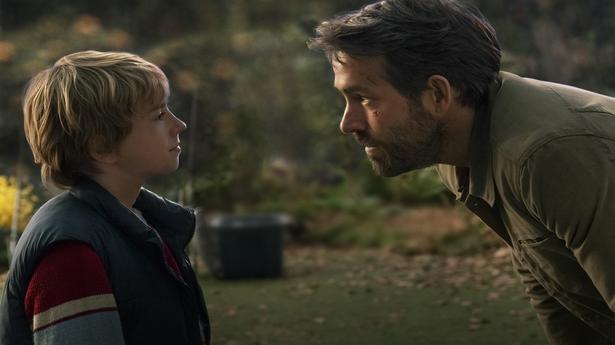
The Adam Project’s human story
The Hindu
Shawn Levy talks about the perils of absolute power in today’s world and the long shadow of childhood in his latest sci-fi adventure starring Ryan Reynolds
That the best sci-fi films have always rested on how deftly they navigated complex human emotions is a given, and it is with this frame of reference that Shawn Levy tackles his upcoming project, Netflix’s The Adam Project, streaming from March 11.
“It’s a family drama,” he says. “And the film uses spectacle and the sci-fi genre as a vehicle for emotional storytelling.” Also starring Mark Ruffalo, Jennifer Garner and Zoe Saldaña, it has the character of Adam Reed, played by Ryan Reynolds, racing against time to fix things in the past. There are some moving realisations, when he meets his younger self using time travel, about mothers who sacrifice to no end, the nature of grief, and the things we do for love.
Going by the limited reactions to the film so far, Levy says that it’s now clearer to him that it’s the “emotionality that has stuck” the most. Incidentally, Shawn Levy, 53, was one of the co-producers on Denis Villeneuve’s Arrival (2016). Apart from being the story of a linguist trying to figure out the language of mysterious aliens, it was ultimately about a single mother making sense of a fragmented past involving her daughter. The film was nominated for the Academy Award for the Best Picture that year.
“I love stories of redemption,” Levy continues, when I ask him about the nature of emotions he has always gravitated towards. “And I am very moved by the possibility of forgiveness — forgiving your parents or yourself.”
As the film progresses beyond the quantum jumping and strange wormholes that help the characters straddle many decades, Levy uses the impulsive nature of childhood to probe a question that perhaps bothers most of us: with the renewed maturity that comes with adulthood, what if we could balance our childhood anew?
This is a question that Levy has confronted to varying degrees — humorously, intensely — in most of his works. In Netflix’s Stranger Things, which he has executive-produced and directed (two episodes each season), childhood is both an enabler of truths and the way to the playground of clumsy affairs.
“I’ve always gravitated towards the nature of identity and experience in childhood,” he explains. “It’s probably because my own childhood was far from ideal because I feel it ended earlier than it should have. I’m constantly trying to recapture a certain sense of joy and wonder in the many childhoods I present on the screen.”













